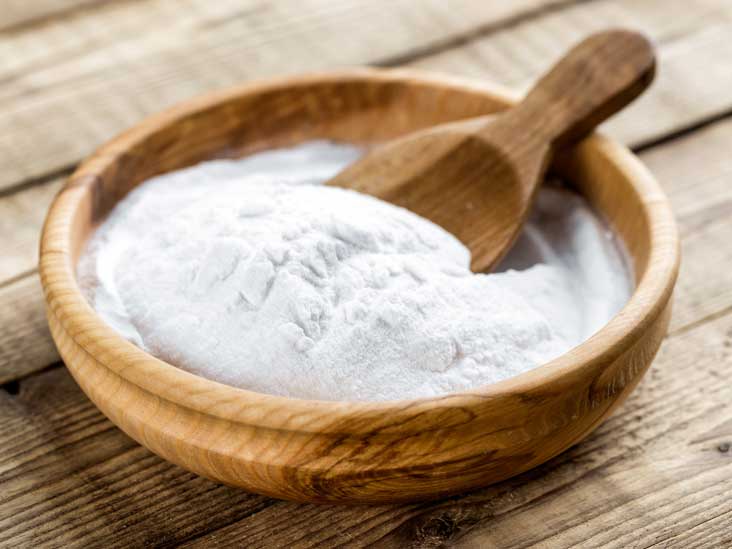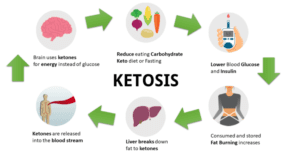Well, you might know that wallpaper glue and salad dressing have something in common. It’s Xanthan Gum, a food additive that you are unaware of but probably consume many times a week.
However, it’s found in many industrial products and has been linked to certain health conditions problems, people are concerned about its safety.
But the FDA considers it safe for consumption as an additive.
Moreover, it is popular as a supplement and a common ingredient in gluten-free products is growing.
What Is Xanthan Gum?
- It is a popular additive that’s commonly found in foods as a thickener or stabilizer.
- It is formed when bacteria ferment sugar by bacteria Xanthomonas campestris. When sugar is fermented, it creates a broth, which is made solid by adding alcohol. It is then turned into a powder.
- When powder version is added to a liquid, it quickly disperses and creates a vicious and stable solution. It is used as a great stabilizing and thickening agent.
- Your body is unable to digest it, and it does not provide any calories or nutrients.
Where Is Xanthan Gum Found?
It is found in various products:
Food Products
It is used to improve the flavor, texture, shelf life, and thickening of food products. It also stabilizes foods, helping certain foods withstand different temperatures and pH levels. Furthermore, it helps to prevent food to run out and lets them flow in the container.
The following are some common foods:
- Salad dressings
- Bakery products
- Fruit juices
- Soups
- Ice creams
- Sauces and gravies
- Syrups
- Gluten-free products
- Low-fat foods
Personal Care Products
Xanthum is further used in many different beauty products and personal care. It allows these products to be thick but still flow easily out of their containers. It also allows solid particles to be suspended in liquids.
The following are some common products:
- Toothpaste
- Creams
- Lotions
- Shampoo
Industrial Products
It is an important product in many industrial products due to its ability to withstand different temperatures and pH levels, cling to surfaces, and thicken liquids, all while maintaining a good flow.
Common industrial products containing it include:
- Fungicides, herbicides and insecticides
- Tile, grout, oven, and toilet bowl cleaners
- Paints
- Fluids used in oil drilling
- Adhesives like wallpaper glue
It May Lower Blood Sugar
- Several studies have found that it can lower blood sugar when consumed in large doses. It turns the fluid in the small intestine and stomach into gel-like substances. This slows down the digestion process and therefore reduces the absorption of sugar in the bloodstream.
Other Health Benefits
It has been linked to other potential health benefits, though these benefits are unlikely to occur without taking supplements.
Some potential health benefits:
- It May Lower Blood Sugar
- Several studies have found that it can lower blood sugar when consumed in large doses- It turns fluids in your stomach and small intestine into a viscous, gel-like substance. This slows digestion and affects how quickly sugar enters your bloodstream, decreasing blood sugar spikes after eating.
- Weight loss: People have noted increased fullness after consuming it. It may increase fullness by delaying stomach emptying and slowing digestion.
- Improved regularity: Improves the movement of water into the intestines to create a softer, bulkier stool that’s easier to pass. Studies have seen that it increases the frequency of bowel movement.
- Thickens liquids: For adults or people who have difficulty in swallowing it can be used to thicken liquids.
When you should not have Xanthan Gum?
It Can Cause Digestive Issues
For most people, the only potential negative side effect appears to be an upset stomach. Increased consumption of the gum is known to soften the stools.
In human studies, large doses can lead to the following effects:
- Increased frequency of bowel movements
- Increased stool output
- Softer stools
- Increased gas
- Altered gut bacteria
People With Severe Wheat, Corn, Soy or Dairy Allergies
- It is a derivative of sugar. The sugar can come from many different places, including wheat, corn, soy, and dairy.
- People with severe allergies to these products may need to avoid foods unless they can determine what source.
Those Taking Certain Medications or Planning Surgery
Xanthan gum can lower blood sugar levels. It can be risky for those individuals who have diabetes and take oral drugs for reducing blood sugar levels. Besides, it can be dangerous for people who are going for surgery soon.
These people are fine to consume some foods with it, but they should avoid large amounts of it until its effect on blood sugar is better understood.
We conclude that,
Xanthum is a popular food additive for stabilizing, thickening, and suspending. It is present in various food and comes off to be safe for most individuals. It may also have some benefits when consumed in adequate amounts. However, its higher intake can also increase the risk of digestive problems.
Get yourself started today and Stay tuned for more such keto weight loss journeys, health content, and recipes! Also, don\’t forget to follow us on Instagram for the daily dose of the Keto Lifestyle!











